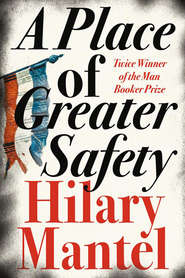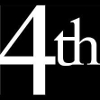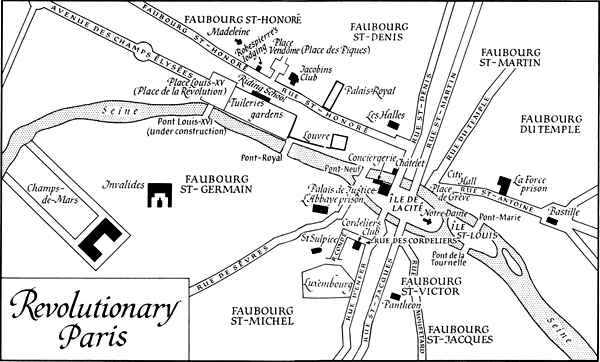
Полная версия:
A Place of Greater Safety

HILARY MANTEL
A Place of Greater Safety


This novel is entirely a work of fiction. The characters and incidents portrayed in it are the work of the author’s imagination. Any resemblance to actual persons, living or dead, events or localities, is entirely coincidental
Fourth Estate
An imprint of HarperCollinsPublishers Ltd. 1 London Bridge Street London SE1 9GF
www.harpercollins.co.uk
Paperback edition first published by Harper Perennial 2007
First published in Great Britain by Viking 1992
Copyright © Hilary Mantel 1992
Hilary Mantel asserts the moral right to be identified as the author of this work
PS section copyright © Sarah O’Reilly 2010
PS™ is a trademark of HarperCollinsPublishers Ltd
A catalogue record for this book is available from the British Library
All rights reserved under International and Pan-American Copyright Conventions. By payment of the required fees, you have been granted the nonexclusive, nontransferable right to access and read the text of this ebook on-screen. No part of this text may be reproduced, transmitted, downloaded, decompiled, reverse-engineered, or stored in or introduced into any information storage and retrieval system, in any form or by any means, whether electronic or mechanical, now known or hereinafter invented, without the express written permission of HarperCollins
HarperCollinsPublishers has made every reasonable effort to ensure that any picture content and written content in this ebook has been included or removed in accordance with the contractual and technological constraints in operation at the time of publication
Source ISBN 9780007250554
Ebook Edition © NOVEMBER 2009 ISBN: 9780007354849
Version: 2017-02-13
Praise
From the reviews of A Place of Greater Safety:
‘Crafty tensions, twists and high drama … a bravura display of her endlessly inventive, eerily observant style’
Times Literary Supplement
‘A formidably talented novelist … She has seen deeply into her characters and their involvements with one another, and makes them live for us, with vivid invented detail, day by day, as they are battered or seduced by public events’
London Review of Books
‘Much, much more than an historical novel, this is an addictive study of power, and the price that must be paid for it … a triumph’
Cosmopolitan
‘Intriguing … She has grasped what made these young revolutionaries – and with them the French Revolution – tick … This is the perfect complement to Simon Schama’s history of the French Revolution, Citizens’
Independent
‘Concentrating on the tortuously interwoven relationship between its three most important protagonists, Robespierre, Danton and Desmoulins, Hilary Mantel has pulled off the apparently impossible … an ambitious, gripping epic … The host of minor characters and the swirling mob who form the necessary background to the story are never lost from sight, but are expertly marshalled on and off the bloodstained stage … a tour de force of the historical imagination’
Vogue
‘Mantel’s grasp both of detail and the complex sweep of events is quite remarkable …“her people” are firmly rooted in physical and historical reality … Little is known of the personal lives of most revolutionary leaders before 1789, and after they became famous, they lived constantly in the public eye. Yet Mantel has managed to get inside them by feeling her way through their writings, families and, quite brilliantly, their women’
Times Literary Supplement
Dedication
To Clare Boylan
Contents
Cover
Title Page
Copyright
Praise
Dedication
Author’s Note
Cast of Characters
Map of Revolutionary Paris
PART ONE
I. Life as a Battlefield (1763–1774)
II. Corpse-Candle (1774–1780)
III. At Maître Vinot’s (1780)
PART TWO
I. The Theory of Ambition (1784–1787)
II. Rue Condé: Thursday Afternoon (1787)
III. Maximilien: Life and Times (1787)
IV. A Wedding, a Riot, a Prince of the Blood (1787–1788)
V. A New Profession (1788)
VI. Last Days of Titonville (1789)
VII. Killing Time (1789)
PART THREE
I. Virgins (1789)
II. Liberty, Gaiety, Royal Democracy (1790)
III. Lady’s Pleasure (1791)
IV. More Acts of the Apostles (1791)
PART FOUR
I. A Lucky Hand (1791)
II. Danton: His Portrait Made (1791)
III. Three Blades, Two in Reserve (1791–1792)
IV. The Tactics of a Bull (1792)
V. Burning the Bodies (1792)
PART FIVE
I. Conspirators (1792)
II. Robespierricide (1792)
III. The Visible Exercise of Power (1792–1793)
IV. Blackmail (1793)
V. A Martyr, a King, a Child (1793)
VI. A Secret History (1793)
VII. Carnivores (1793)
VIII. Imperfect Contrition (1793)
IX. East Indians (1793)
X. The Marquis Calls (1793)
XI. The Old Cordeliers (1793–1794)
XII. Ambivalence (1794)
XIII. Conditional Absolution (1794)
Note
Keep Reading
Excerpt from Wolf Hall by Hilary Mantel
P.S. Ideas, interviews & features …
About the author
A Kind of Alchemy
Life at a Glance
A Writing Life
Read on
Have You Read?
About the Author
Also by the Author
About the Publisher
Author’s Note
THIS IS A NOVEL about the French Revolution. Almost all the characters in it are real people and it is closely tied to historical facts – as far as those facts are agreed, which isn’t really very far. It is not an overview or a complete account of the Revolution. The story centres on Paris; what happens in the provinces is outside its scope, and so for the most part are military events.
My main characters were not famous until the Revolution made them so, and not much is known about their early lives. I have used what there is, and made educated guesses about the rest.
This is not, either, an impartial account. I have tried to see the world as my people saw it, and they had their own prejudices and opinions. Where I can, I have used their real words – from recorded speeches or preserved writings – and woven them into my own dialogue. I have been guided by a belief that what goes on to the record is often tried out earlier, off the record.
There is one character who may puzzle the reader, because he has a tangential, peculiar role in this book. Everyone knows this about Jean-Paul Marat: he was stabbed to death in his bath by a pretty girl. His death we can be sure of, but almost everything in his life is open to interpretation. Dr Marat was twenty years older than my main characters, and had a long and interesting pre-revolutionary career. I did not feel that I could deal with it without unbalancing the book, so I have made him the guest star, his appearances few but piquant. I hope to write about Dr Marat at some future date. Any such novel would subvert the view of history which I offer here. In the course of writing this book I have had many arguments with myself, about what history really is. But you must state a case, I think, before you can plead against it.
The events of the book are complicated, so the need to dramatize and the need to explain must be set against each other. Anyone who writes a novel of this type is vulnerable to the complaints of pedants. Three small points will illustrate how, without falsifying, I have tried to make life easier.
When I am describing pre-revolutionary Paris, I talk about ‘the police’. This is a simplification. There were several bodies charged with law enforcement. It would be tedious, though, to hold up the story every time there is a riot, to tell the reader which one is on the scene.
Again, why do I call the Hôtel de Ville ‘City Hall’? In Britain, the term ‘Town Hall’ conjures up a picture of comfortable aldermen patting their paunches and talking about Christmas decorations or litter bins. I wanted to convey a more vital, American idea; power resides at City Hall.
A smaller point still: my characters have their dinner and their supper at variable times. The fashionable Parisian dined between three and five in the afternoon, and took supper at ten or eleven o’clock. But if the latter meal is attended with a degree of formality, I’ve called it ‘dinner’. On the whole, the people in this book keep late hours. If they’re doing something at three o’clock, it’s usually three in the morning.
I am very conscious that a novel is a cooperative effort, a joint venture between writer and reader. I purvey my own version of events, but facts change according to your viewpoint. Of course, my characters did not have the blessing of hindsight; they lived from day to day, as best they could. I am not trying to persuade my reader to view events in a particular way, or to draw any particular lessons from them. I have tried to write a novel that gives the reader scope to change opinions, change sympathies: a book that one can think and live inside. The reader may ask how to tell fact from fiction. A rough guide: anything that seems particularly unlikely is probably true.
Cast of Characters
PART I
In Guise:
Jean-Nicolas Desmoulins, a lawyer
Madeleine, his wife
Camille, his eldest son (b. 1760)
Elisabeth, his daughter
Henriette, his daughter (died aged nine)
Armand, his son
Anne-Clothilde, his daughter
Clément, his youngest son
Adrien de ViefvilleJean-Louis de Viefville
The Prince de Condé, premier nobleman of the district and a client of Jean-Nicolas Desmoulins
In Arcis-sur-Aube:
Marie-Madeleine Danton, a widow, who marries
Jean Recordain, an inventor
Georges-Jacques, her son (b. 1759)
Anne Madeleine, her daughter
Pierrette, her daughter
Marie-Cécile, her daughter, who becomes a nun
In Arras:
François de Robespierre, a lawyer
Maximilien, his son (b. 1758)
Charlotte, his daughter
Henriette, his daughter (died aged nineteen)
Augustin, his younger son
Jacqueline, his wife, née Carraut, who dies after giving birth to a fifth child
Grandfather Carraut, a brewer
Aunt EulalieAunt Henriette
In Paris, at Louis-le-Grand:
Father Poignard, the principal – a liberal minded man
Father Proyart, the deputy principal – not at all a liberal-minded man
Father Herivaux, a teacher of classical languages
Louis Suleau, a student
Stanislas Fréron, a very well-connected student, known as ‘Rabbit’
In Troyes:
Fabre d’Églantine, an unemployed genius
PART II
In Paris:
Maître Vinot, a lawyer in whose chambers Georges-Jacques Danton is a pupil
Maître Perrin, a lawyer in whose chambers Camille Desmoulins is a pupil
Jean-Marie Hérault de Séchelles, a young nobleman and legal dignitary
François-Jérôme Charpentier, a café owner and Inspector of Taxes
Angélique (Angelica) his Italian wife
Gabrielle, his daughter
Françoise-Julie Duhauttoir, Georges-Jacques Danton’s mistress
At the rue Condé:
Claude Duplessis, a senior civil servant
Annette, his wife
AdèleLucile
Abbé Laudréville, Annette’s confessor, a go-between
In Guise:
Rose-Fleur Godard, Camille Desmoulins’s fiancée
In Arras:
Joseph Fouché, a teacher, Charlotte de Robespierre’s beau
Lazare Carnot, a military engineer, a friend of Maximilien de Robespierre
Anaïs Deshorties, a nice girl whose relatives want her to marry Maximilien de Robespierre
Louise de Kéralio, a novelist: who goes to Paris, marries François Robert and edits a newspaper
Hermann, a lawyer, a friend of Maximilien de Robespierre
The Orléanists:
Philippe, Duke of Orléans, cousin of King Louis XVI
Félicité de Genlis, an author – his ex-mistress, now Governor of his children
Charles-Alexis Brulard de Sillery, Comte de Genlis – Félicité’s husband, a former naval officer, a gambler
Pierre Choderlos de Laclos, a novelist, the Duke’s secretary
Agnès de Buffon, the Duke’s mistress
Grace Elliot, the Duke’s ex-mistress, a spy for the British Foreign Office
Axel von Fersen, the Queen’s lover
At Danton’s chambers:
Jules Paré, his clerk
François Deforgues, his clerk
Billaud-Varennes, his part-time clerk, a man of sour temperament
At the Cour du Commerce:
Mme Gély, who lives upstairs from Georges-Jacques and Gabrielle Danton
Antoine, her husband
Louise, her daughter
Catherine Marie
Legendre, a master butcher, a neighbour of the Dantons
François Robert, a lecturer in law: marries Louise de Kéralio, opens a delicatessen, and later becomes a radical journalist
René Hébert, a theatre box-office clerk
Anne Théroigne, a singer
In the National Assembly:
Antoine Barnave, a deputy: at first a radical, later a royalist
Jérôme Pétion, a radical deputy, later called a ‘Brissotin’
Dr Guillotin, an expert on public health
Jean-Sylvain Bailly, an astronomer, later Mayor of Paris.
Honoré-Gabriel Riquetti, Comte de Mirabeau, a renegade aristocrat sitting for the Commons, or Third Estate
Teutch, Mirabeau’s valet
ClavièreDumontDuroveray
Jean-Pierre Brissot, a journalist
Momoro, a printer
Réveillon, owner of a wallpaper factory
Hanriot, owner of a saltpetre works
De Launay, Governor of the Bastille
PART III
M. Soulès, temporary Governor of the Bastille
The Marquis de Lafayette, Commander of the National Guard
Jean-Paul Marat, a journalist, editor of the People’s Friend
Arthur Dillon, Governor of Tobago and a general in the French army; a friend of Camille Desmoulins
Louis-Sébastien Mercier, a well-known author
Collot d’Herbois, a playwright
Father Pancemont, a truculent priest
Father Bérardier, a gullible priest
Caroline Rémy, an actress
Père Duchesne, a furnace-maker: fictitious alter ego of René. Hébert, box-office clerk turned journalist
Antoine Saint-Just, a disaffected poet, acquainted with or related to Camille Desmoulins
Jean-Marie Roland, an elderly ex-civil servant
Manon Roland, his young wife, a writer
François-Léonard Buzot, a deputy, member of the Jacobin Club and friend of the Rolands
Jean-Baptiste Louvet, a novelist, Jacobin, friend of the Rolands
PART IV
At the rue Saint-Honoré:
Maurice Duplay, a master carpenter
Françoise Duplay, his wife
Eléonore, an art student, his eldest daughter
Victoire, his daughter
Elisabeth (Babette), his youngest daughter
Charles Dumouriez, a general, sometime Foreign Minister
Antoine Fouquier-Tinville, a lawyer; Camille Desmoulins’s cousin
Jeanette, the Desmoulins’s servant
PART V
Politicians described as ‘Brissotins’ or ‘Girondins’:
Jean-Pierre Brissot, a journalist
Jean-Marie and Manon Roland
Pierre Vergniaud, member of the National Convention, famous as an orator
Jérôme Pétion
François-Léonard Buzot
Jean-Baptiste Louvet
Charles Barbaroux, a lawyer from Marseille and many others
Albertine Marat, Marat’s sister
Simone Evrard, Marat’s common-law wife
Defermon, a deputy, sometime President of the National Convention
Jean-François Lacroix, a moderate deputy: goes ‘on mission’ to Belgium with Danton in 1792 and 1793
David, a painter
Charlotte Corday, an assassin
Claude Dupin, a young bureaucrat who proposes marriage to Louise Gély, Danton’s neighbour
Souberbielle, Robespierre’s doctor
Renaudin, a violin-maker, prone to violence
Father Kéravenen, an outlaw priest
Chauveau-Lagarde, a lawyer: defence council for Marie-Antoinette
Philippe Lebas, a left-wing deputy: later a member of the Committee of General Security, or Police Committee; marries Babette Duplay
Vadier, known as ‘the Inquisitor’, a member of the Police Committee
Implicated in the East India Company fraud:
Chabot, a deputy, ex-Capuchin friar
Julien, a deputy, former Protestant pastor
Proli, secretary to Hérault de Séchelles, and said to be an Austrian spy
Emmanuel Dobruska and Siegmund Gotleb, known as Emmanuel and Junius Frei: speculators
Guzman, a minor politician, Spanish-born
Diedrichsen, a Danish ‘businessman’
Abbé d’Espanac, a crooked army contractor
BasireDelaunay
Citizen de Sade, a writer, formerly a marquis
Pierre Philippeaux, a deputy: writes a pamphlet against the government during the Terror
Some members of the Committee of Public Safety:
Saint-André
Barère
Couthon, a paraplegic, a friend of Robespierre
Robert Lindet, a lawyer from Normandy, a friend of Danton
Etienne Panis, a left-wing deputy, a friend of Danton
At the trial of the Dantonists:
Hermann (once of Arras), President of the Revolutionary
Tribunal
Dumas, his deputy
Fouquier-Tinville, now Public Prosecutor
FleuriotLiendon
Fabricius Pâris, Clerk of the Court
Laflotte, a prison informer
Henri Sanson, public executioner
Map of Revolutionary Paris

PART ONE
LOUIS XV is named the Well-Beloved. Ten years pass. The same people believe the Well-Beloved takes baths of human blood … Avoiding Paris, ever shut up at Versailles, he finds even there too many people, too much daylight. He wants a shadowy retreat …
In a year of scarcity (they were not uncommon then) he was hunting as usual in the Forest of Sénart. He met a peasant carrying a bier and inquired, ‘Whither he was conveying it?’ ‘To such a place.’ ‘For a man or a woman?’ ‘A man.’ ‘What did he die of?’ ‘Hunger.’
Jules Michelet
I. Life as a Battlefield
(1763–1774)
NOW THAT THE DUST has settled, we can begin to look at our situation. Now that the last red tile has been laid on the roof of the New House, now that the marriage contract is four years old. The town smells of summer; not very pleasant, that is, but the same as last year, the same as the years to follow. The New House smells of resin and wax polish; it has the sulphurous odour of family quarrels brewing.
Maître Desmoulins’s study is across the courtyard, in the Old House that fronts the street. If you stand in the Place des Armes and look up at the narrow white façade, you can often see him lurking behind the shutters on the first floor. He seems to stare down into the street; but he is miles away, observers say. This is true, and his location is very precise. Mentally, he is back in Paris.
Physically, at this moment, he is on his way upstairs. His three-year-old son is following him. As he expects the child to be under his feet for the next twenty years, it does not profit him to complain about this. Afternoon heat lies over the streets. The babies, Henriette and Elisabeth, are asleep in their cribs. Madeleine is insulting the laundry girl with a fluency and venom that belie her gravid state, her genteel education. He closes the door on them.
As soon as he sits down at his desk, a stray Paris thought slides around his mind. This happens often. He indulges himself a little: places himself on the steps of the Châtelet court with a hard-wrung acquittal and a knot of congratulatory colleagues. He gives his colleagues names and faces. Where is Perrin this afternoon? And Vinot? Now he goes up twice a year, and Vinot – who used to discuss his Life Plan with him when they were students – had walked right past him in the Place Dauphine, not knowing him at all.



